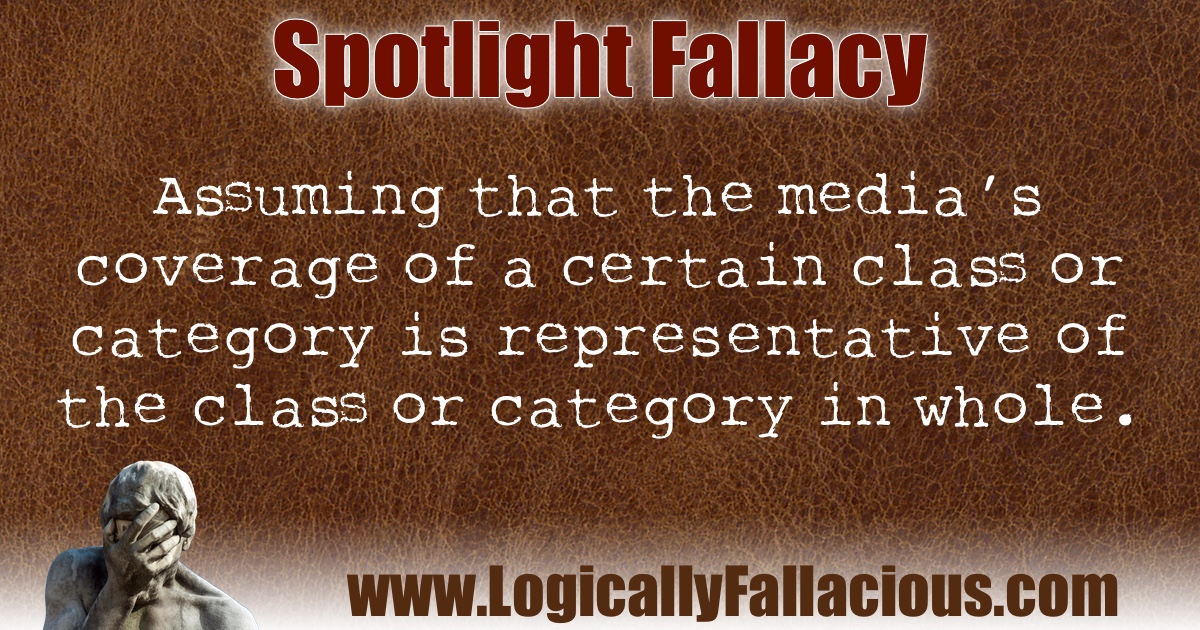Description: Assuming that the media’s coverage of a certain class or category is representative of the class or category in whole.
Logical Form:
The media have been covering X quite a bit by describing it as Y.
Therefore, X can be described as Y.
Example #1:
It seems like we are constantly hearing about crimes committed on our streets. America is a very dangerous place.
Explanation: The media reports on stories of interest, which include crimes. It does not report on all the non-crimes. Assuming from this, “American is a very dangerous place” is fallacious reasoning.
Example #2:
I am seeing more and more miracles being reported on respectable news programs. The other day there was a story about a guy who had trouble walking, prayed to the recently deceased Pope, now walks just fine! Miracles are all around us!
Explanation: People love stories of hope and miracles. You won’t find stories about how someone prayed to be healed then died. These are not the kind of stories that attract viewers and sell papers. As a result, the spotlight fallacy makes us think the rare cases, almost certainly due to normal and necessary statistical fluctuations, seem like the norm. Believing that they are, is fallacious reasoning.
Exception: Complete coverage of a small, manageable class, by an unbiased media outlet, may accurately be representative of the entire class.
Tip: Be very selective of the types of “news” programs you watch.
